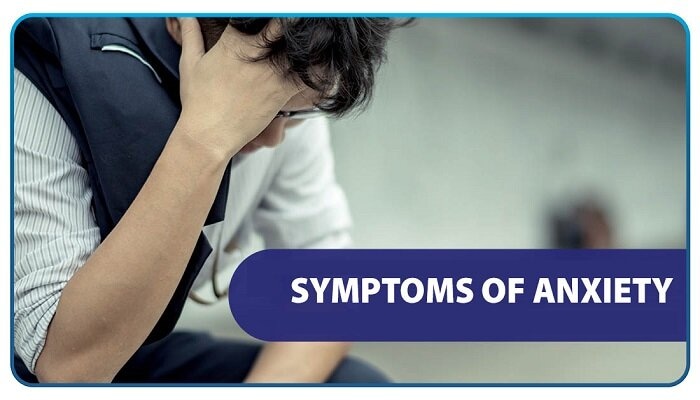Anxiety is a natural response to stressful situations, but at times, it can begin to interfere with your daily life. Millions of people worldwide are affected by anxiety disorders, and it’s becoming more and more prevalent.
It’s important to understand the symptoms of this condition so that you take the right measures before it becomes worse. Avoiding your feelings can end up causing further mental problems later on down the road.
While it affects everyone differently, below we are going to take a look at some of the most common signs.
Constant Worrying
One of the most common symptoms of anxiety is constant worrying. Those with the disorder tend to worry excessively about everyday issues, including health, relationships, work, or money.
While we all experience these concerns, those with anxiety fixate on them. This can lead to negative self-talk as they aren’t able to control or find a fix to the situation.
Other individuals may have rather irrational fears. They could be afraid of a circumstance that poses no large threat. For example, riding in an elevator, taking the bus, or going out to the shops could prove overwhelming.
Muscle Tension
While anxiety is known as a mental condition, it can also cause physical symptoms. Muscle tension, headaches, and stomach issues occur when your muscles are constantly contracted due to feelings of stress.
In some cases, individuals may engage in habits or behavior that can cause further complications, such as biting their lips or cheeks. You can read more here.
Sleep Issues
Like many other health problems, anxiety can disrupt sleep patterns. Individuals may find themselves suffering from insomnia or waking up frequently throughout the night.
Generally, this is due to obsessive worrying as we mentioned above, or racing thoughts which make it hard to switch off. Fatigue and poor sleep hygiene can then worsen other symptoms mentioned on this list.
Social Isolation
Social isolation can occur for a variety of reasons. In most cases, those with an anxiety disorder feel uncomfortable with large groups of people and have trouble making decisions regarding parties and events.
They may avoid social outings altogether, which can then lead to feelings of isolation and loneliness. While it can be difficult, it’s possible to overcome these concerns by seeking treatment.
Panic Attacks
Panic attacks happen without warning and can be described as sudden episodes of intense fear or discomfort. During this period, an individual may experience chest pain, shortness of breath, sweating, and shaking. Excessive sweating, especially of the palms, may also be a sign of hyperhidrosis, which you can read more about here. These attacks can be overwhelming and tend to prevent the person from moving forward due to the fear of another attack. Deep breathing and counting strategies can help the body calm down during these times.
Final Words
Anxiety can affect everyone differently, but it’s important to know that it’s treatable and manageable. If you or a loved one are experiencing any of the signs and symptoms above, reach out and seek professional help and support. You’re not alone, and there are ways to overcome this condition.


















